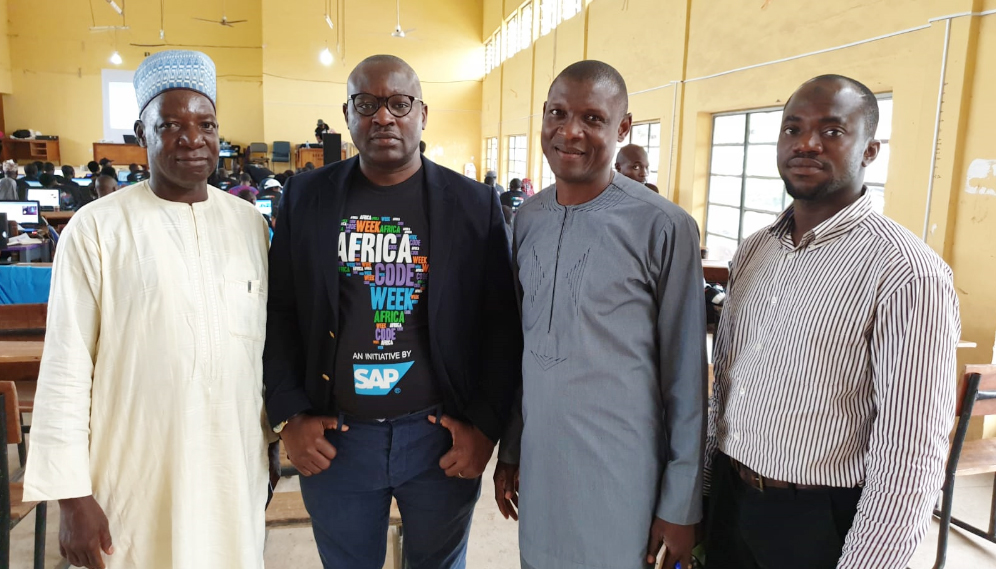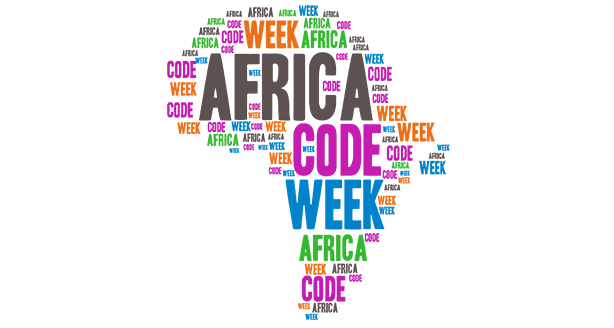German company SAP takes digital education to every corner of Nigeria
Africa Code Week expands access to Train-the-Trainer programme in Nigeria
SAP Africa Code Week has collaborated with the governments of Niger and Taraba States to bring digital skills training to teachers in the country’s northern provinces for the first time. Between 19 and 23 August, a total of 438 teachers were trained in three locations in Niger State, namely Minna, Bida and Kotangora and 269 teachers trained in Taraba State between 27 and 30 August. The goal: rapidly equip primary and secondary school teachers with digital skills training and learning tools ahead of this year’s Africa Code Week, which is taking place in October across 37 African countries.
The ACW events in Northern Nigeria immediately followed a 5-day capacity building program that was organised by Nigeria’s Federal Ministry of Education in Lagos. Facilitated by local NGO Coderina, a key partner with the FMoE in the area of digital literacy, coding and robotics, the training took place between 5 and 9 August for 228 teachers from Federal Government Schools.
Mrs Ayo Omolola, Deputy Director Technology and Science Education (TSE) of Education at the Federal Ministry of Education, representing the Director TSE, said the government is working hard to improve access to relevant education for all Nigeria’s youth. “Preparing our youth for the Fourth Industrial Revolution will require a concerted effort by the public and private sectors to bring more youth into the digital fold. And it all starts with our teachers, who will inspire and train a new generation of workers that will drive the country’s economy over the coming decades.”

Nigeria is Africa’s most populous country and has the continent’s largest economy. However, literacy rates especially in rural areas remain low. According to a 2017 study, only 51% of men and 34% of women living in Nigeria’s rural areas have basic literacy. In Niger State, nearly 90% of the population depend on agriculture for their livelihoods, and the use of technology in classrooms is severely limited.
This has prompted the government to create a new vision for the state’s education system, with a focus on teachers that are appropriately trained and a curriculum that meets the needs of a changing world.
According to a World Economic Forum report on the future of jobs and skills in Africa, educators across the continent should design future-ready curricula that encourage critical thinking, creativity and emotional intelligence while also advancing digital and STEM skills to prepare the continent’s workforce for the Fourth Industrial Revolution. The same report found that nearly half (46%) of all work activities in Nigeria are susceptible to automation.
Claire Gillissen-Duval, Director of EMEA Corporate Social Responsibility and Africa Code Week Global Lead at SAP, said that public-private partnerships are key to building digital skills training capacity across Africa: “The Africa Code Week Train-the-Trainer program is designed to equip teachers with the skills and tools they need to prepare the continent’s growing youth population for the future workforce, and also trigger their enthusiasm and excitement over the possibilities offered to them by the Fourth Industrial Revolution.”
Local NGOs are also playing a role in driving digital skills development in Nigeria. On August 26th, the Rotary Club of Abuja hosted a workshop for teachers ahead of Africa Code Week. Forming part of the Rotary Club’s CSR activities, the workshop saw 200 teachers from public and private schools supplied with teaching material to support their digital skills training. More TTTs are planned for September in Edo, River and Ekiti States.
“As an organisation whose vision is aligned with the UN Sustainable Development Goals, working with partners to address key socio-economic issues through greater participation in the digital economy is a core part of SAP’s Corporate Social Responsibility mandate,” said Gillissen-Duval. “Growing commitment and support from our public, private and non-profit partners is key to help us achieve our goal of introducing 1.5 million young Africans to digital and coding skills during this fifth edition of Africa Code Week.”With more than 50,000 teachers trained and 4.1 million youth engaged across 37 countries since its inception in 2015, Africa Code Week has already made a lasting contribution to building local teaching capacity on digital education, all over the continent. With more and more like-minded partners on board, the initiative is on a sustainable mission to impact many more schools, teachers and students in the years to come.
Nigeria will celebrate Africa Code Week from 15 to 26 October. A full schedule of workshops and other Africa Code Week activities can be found on www.africacodeweek.orgContent distributed by African Media Agency (AMA) on behalf of SAP Africa.

